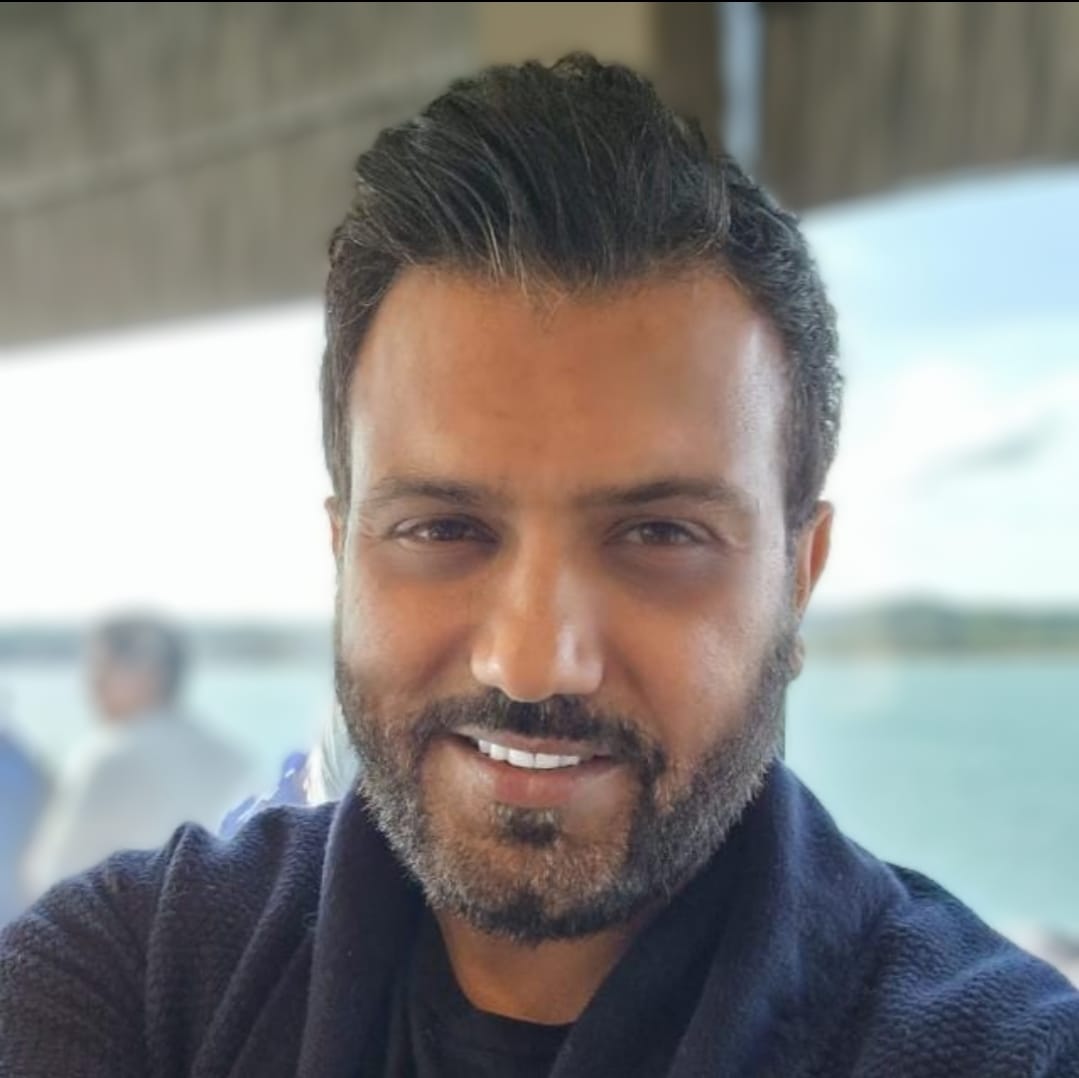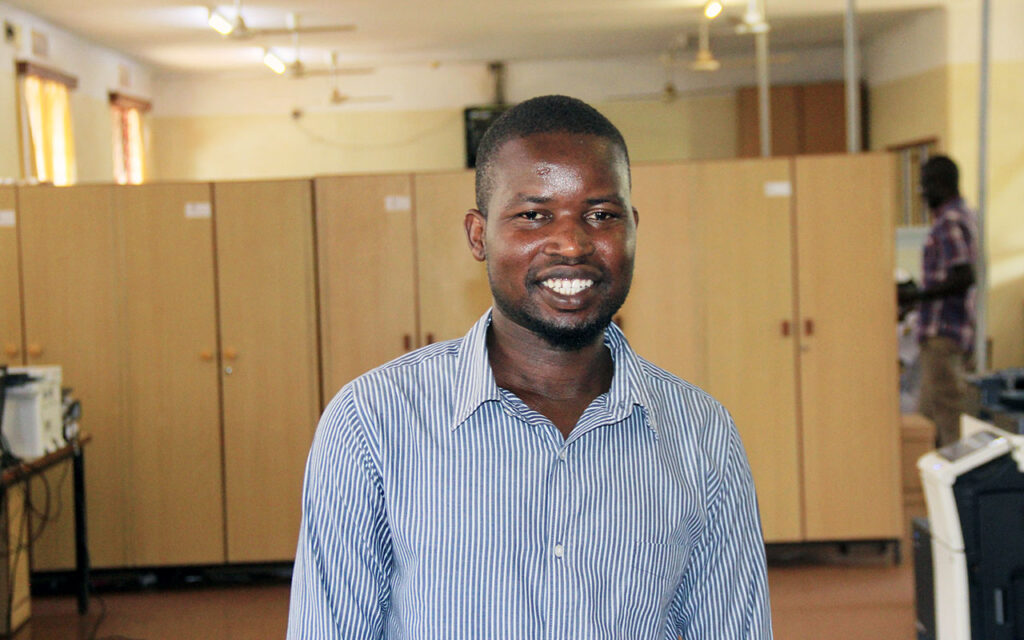On von Willebrand disease, community, and being the voice of the voiceless
Sunny Maini talks about using his experience of von Willebrand disease and a successful corporate background to nurture an empowered patient community
I was diagnosed with Type 3 von Willebrand disease (vWD) as a baby – I bled in the cot. As a child, I was treated at Great Ormond Street Hospital, with Kate Khair as my nurse.
When I was growing up in the 1980s and 1990s, treatment for vWD wasn’t available in the same way that it is today. I’d wake up with my mouth full of blood, my nose bleeding, blood in my belly. I was treated with cryoprecipitate, which meant going into hospital bleeding at two or three o’clock in the morning, waiting for the treatment to be unfrozen. It was scary.
As I’ve got older, I have different challenges. My gums still bleed consistently, regardless of how well I keep my teeth, and I now have bleeding in my joints. Treatment has changed and I’ve had different plasma products over the years. Overall, though, there’s still not that much treatment available for vWD.
A catalyst for change
Living with a chronic condition like vWD can be isolating, both externally and internally. When you interact with other people, the knowledge just isn’t there – you have difficulties when it comes to work, relationships, friends. Your disease isn’t something you can catch; there’s misunderstanding and that’s a big problem. You’re also fighting your own internal battles, low self-esteem, leading to anxiety which can stay with you throughout your life.
I’ve experienced all of this but I haven’t allowed vWD to hinder me. In other words, while I’m a product of my past, I’m not a prisoner of it.
With the right mentality, you can use the hard, painful situations you’ve lived through as a catalyst for change. I’ve had a successful career in the corporate world, building Presentus, the UK’s first ever direct talent coaching and recruitment platform, and I reached a stage in my life where I wanted to give something back. I wanted to make a change and stop that sense of isolation, because I knew it wasn’t just me – I knew there were people with vWD of all ages and backgrounds, men and women facing the same thing. And who better help bring about change for people with vWD than someone who has suffered but never allowed vWD to define them?
Community focus
Overcoming isolation is always going to be about bringing people together. I’ve seen other people with vWD when I’ve been at the hospital for an appointment or because I’m bleeding – but that’s not really a time to converse because you’ve got more important things to think about. It wasn’t until around three years ago that I properly met another person with vWD for the first time.
At that time, I started the vWD group and became the vWD ambassador for the UK. Community became my focus. Using my corporate skills, I created and developed a strategy involving education, raising awareness, and creating a community where people with vWD could share their experiences and support each other. We held our first community event in Sheffield for over 60 people, and it was both educational and fun – I always believe in having fun. I also chaired the European Haemophilia Consortium’s von Willebrand’s group, where we did a similar thing, raising awareness and holding educational seminars for people with vWD.
Shared experience
Whether you’re a woman, a man, in your twenties or in your sixties, if you live with vWD you’ll have suffered with it in some way. It’s the most common inherited bleeding disorder and there are over 11,000 people diagnosed with vWD in the UK. There’s clearly a difference in how men and women experience vWD – I feel for the women because of the impact on their menstrual cycles and I feel for the men because they hide so much of what they experience.
And of course, there are different types and severities of vWD. However, I’ve come across people with Type 1 (usually mild) who have had quite significant bleeds that would put my Type 3 (severe) bleeds in a minor category. It’s not about our type – it’s about our experiences, what we’ve gone through. It’s the impact vWD has on your life and also what could happen. It’s seeing doctors, physiotherapists and surgeons who have no idea about vWD.
More than just belonging
Our shared experience brings us together, but community is much more than just belonging to something. It’s the power of doing something together that really makes us belong. Never doubt that a small group of thoughtful, committed people can change the landscape. Creating a vWD community means building a network of support, shared knowledge and collective advocacy. It’s about being the voice for the voiceless – and it all starts with education.
Nelson Mandela said that education is the most powerful weapon we can use to change the world. We want to empower and educate people with vWD, clinicians, patient organisations, everyone in the wider bleeding disorders community for the benefit of people with vWD. Going beyond advocacy, it’s about empowering people to make a change. And of course, we want to do fun stuff as well, holding events across the UK.
So, if you live with vWD, why would you not want to bring about a positive impact on your life, learn more about treatment and be part of an engaged and active community?
Working with Haemnet
To create a change, you’ve got to be a change agent – and I believe Haemnet is a change agent in a community that’s crying out for something different and innovative
Haemnet’s philosophy is all about sharing experience and expanding knowledge to help improve the lives of all people who live with a bleeding disorder. That aligns with my own philosophy of educating and empowering everyone in the bleeding disorders community, and it’s why the vWD group has chosen to partner with Haemnet.
I hope that bringing the mix of my background and experience to Haemnet will have a positive impact. My personal vision is to help make a change and transform lives so that people with a bleeding disorder don’ t have to suffer in silence any longer. If I could do that, my legacy would be complete.
I want to be the voice of the voiceless.
About the author
Sunny Maini is Director of Corporate Strategy at Haemnet Ltd. To connect with Sunny, email sunny@haemnet.com



